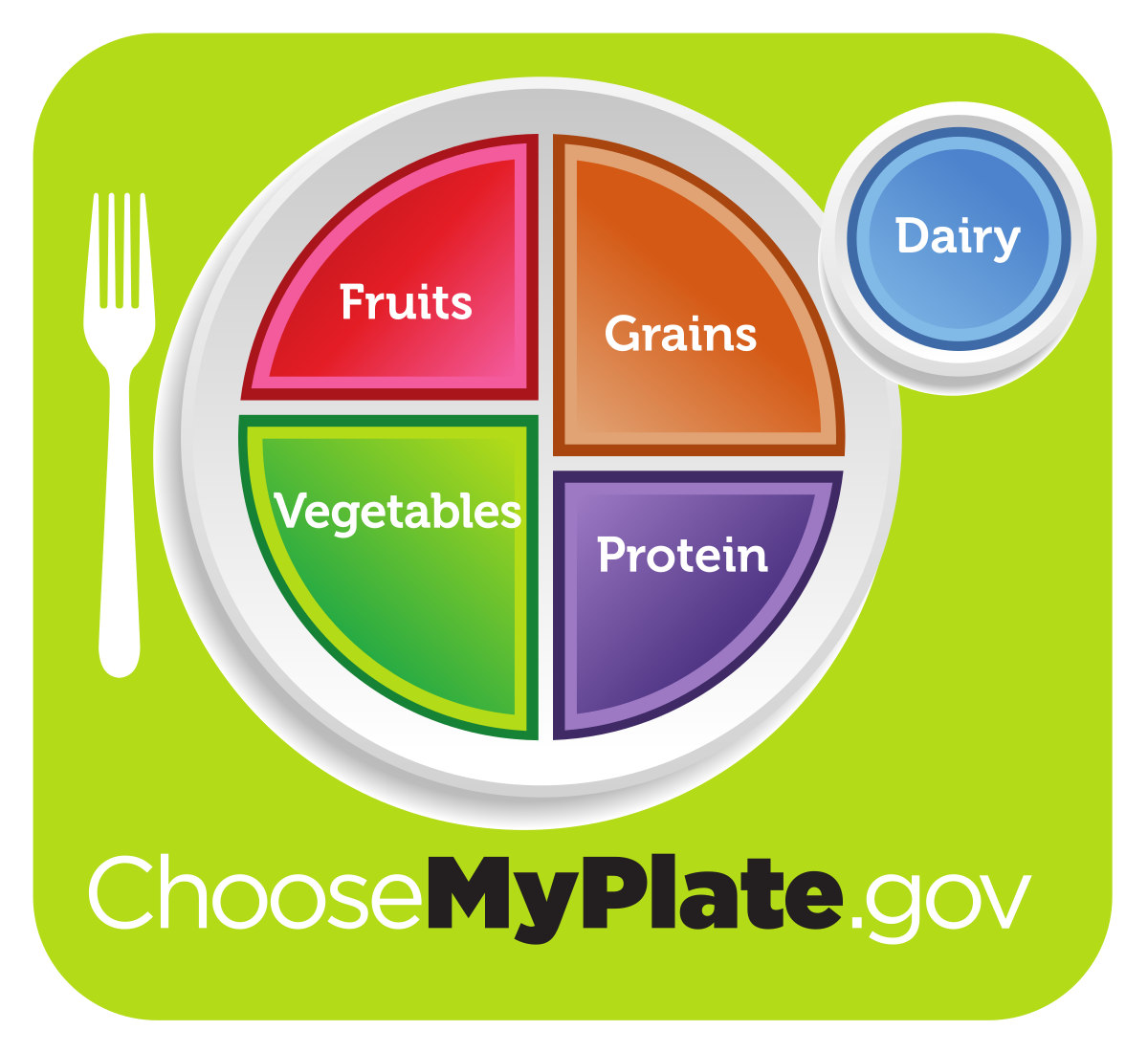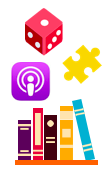Supporting Your Growth & Well-Being
Introduction
The USF community collectively travels through transition, trials, and triumph, but in addition, we each have our individual journey. Regardless of where you are on that journey and how you are feeling about the continued changes that come to our lives, USF CAPS wants to remind you that care and support are only a step away. This Self-Care Kit provides some tips and tools for taking care of yourself any time you need additional ideas for your well-being.
Take care and be well, Dons!
*Adapted from Michigan State University*
Day Structure
When we lose the usual structure of our lives, it can feel like all the days are all blending together and it can be harder to stay on top of things. These apps can help you feel more grounded as you work on creating a schedule and desirable habits.
Sleep
Is your sleep schedule irregular? Are you sleeping more than you want? Are you having trouble falling asleep? If the answer to any of these questions is "yes," you may benefit from these sleep hygiene tips and resources!
Exercise
Exercise is always important for mental and physical health, and for many of us, it became more challenging with COVID restrictions. Find a list of workouts you can do at home, Zoom fitness classes, and more!
Eating & Nutrition
Check out tips, guidelines, and nutrition education from certified dietetic technicians. Call Health Promotion Services at (415) 422-5797 to schedule a consultation. View USDA eating tops when on a budget!
Experiencing food insecurity? Check out the USF Food Pantry.
Many people became more isolated during the most restrictive periods of the pandemic, and others had challenges sheltering in place with family, roommates, or partners. As things continue to change, people may find themselves having ongoing challenges or new challenges around their social lives.
Why Connect?
- To decrease loneliness, stress, depression, and anxiety
- To acknowledge collective stress or trauma and experience solidarity
- To experience love and belonging
- To give and receive care and compassion
- To have a variety of perspectives, not just your own
Some Ways to Build Stronger Connections
- Write a letter
- Pick up the phone and call someone
- Ask meaningful questions
- Answer questions with authenticity
- Connect with someone via video chat
- As COVID safety guidelines change, re-negotiate how you feel comfortable socializing in person
Connecting with Self
Connecting with others is important, but sometimes we need to recharge on our own, get to know ourselves better, or remove ourselves from unhealthy interactions. Here are some tips for connecting with yourself and protecting your personal boundaries.
- Limit social media use, particularly if you find yourself consuming content that impacts you negatively.
- Write. Describe your thoughts and feelings. Keep a gratitude journal.
- Connect with your body through yoga, martial arts, dance, or other ways of staying active.
- Practice self-compassion.
- Do more of what you love and feel good at. Alternatively, try to learn something new.
- If you have little privacy at home and desire it, intentionally take advantage of any alone time (e.g., take long showers, sit in the car, take "fresh air breaks" outside, linger at an empty aisle at the store).
Connecting Virtually or in Person
- Check out resources and info for parents and families
- Find people with shared identities through the Cultural Centers and Gender and Sexuality Center
- See an overview of Student Life services and resources
- Take part in a TikTok Challenge
- Throw a Netflix Party
- Throw a Zoom Dance Party
Religious/Spiritual/Nature Connection
Religion or spirituality can be one way to connect with yourself, others, nature, and/or a higher power(s).
- Connect with University Ministry
- Do a Loving-Kindness Meditation
- Explore Virtual Religious Spaces
- Visit an Animal/Nature Live Cam
For Stress & Difficult Emotions
Distraction
Sometimes we need a break from stress and ruminative thoughts to focus on other things when we are feeling overwhelmed. Some distractions include: games, books or magazines, TV/videos, podcasts, puzzles, creative pursuits, hobbies, sports, and cleaning/organizing.
Challenge Your Thoughts
Struggling with critical thoughts or hopeless worries? Consider trying the Triple B Exercise or Thought Defusion Technique.
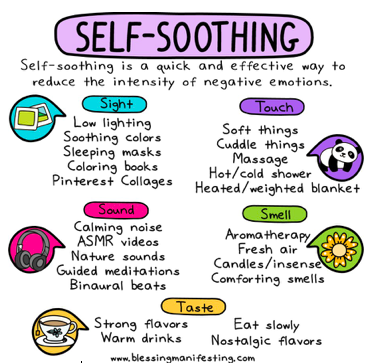
Some Popular Meditation Apps
Grounding
Grounding strategies can help us get in touch with our bodies and surroundings in the present moment. This can reduce racing thoughts and worry and help us feel more alive. Pause what you are doing and pay attention to what you can see, hear, smell, and touch in your environment. Walk slowly around your room or a park and pay close attention to how every step feels. Take some slow, deep breaths while noting how your body feels as you inhale and exhale.
*Mindfulness originated in Eastern spiritual traditions and has been popularized in Western countries in non-spiritual ways.
Comfort can be found in knowing that we have all experienced some level of loss and uncertainty. Different people will respond and handle it differently. There is no "one way" to grieve a loss or one "right way" to feel.
Losses You May Have Experienced
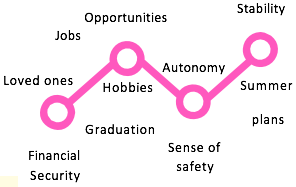
Consider practicing self-compassion as you work through losses and adapt to changing circumstances. Try some of these exercises compiled by Dr. Kristin Neff, a renowned researcher on self-compassion.
Documenting Your Experiences
At some point on your journey, you may find it helpful to consider the unique opportunities for growth or possible "silver linings" during this time. Consider documenting them in some way so that you can reflect on them later.

Control
One factor in coping is learning to let go of some of the struggles you may feel around things you can't control. When we can have some element of control over a circumstance or a problem, it may help us cope if we can strategize, problem-solve, and work toward a solution.
But, in some cases, there is no solution, or at least not one right now. Coping may involve changing our perspective, building acceptance (which doesn't mean pretending we LIKE things as they are, just that we see and acknowledge what is), finding support from others, engaging in activism to promote social change or awareness, or using humor. As noted earlier in this section, coping can also involve cultivating self-compassion or upping our self-care activities (such as relaxation exercises, self-soothing activities, hobbies, and exercise).
Goal Setting
When we are feeling stuck, we need something ahead of us to work toward. Goals can help focus our energy and create a sense of purpose. When generating goals, think about your needs, abilities, and values. Setting SMART Goals is one way to achieve realistic goals within a specified time frame. Create your personalized SMART goals on this website.
It can also be helpful to think about potential obstacles you might face while working toward your goals so you can problem-solve around how to address them (e.g., if your phone is a big distraction, plan to keep it in another room or on silent).
Connect with Your Values
Identifying what is important to us can be one way to foster motivation. Try one of the activities sorting values card below and then consider how you can express your values on a daily basis.
Values cards printable version
Lean on your Strengths
Wholeness
Think about what makes you feel whole, grounded, or like your true self. It can be helpful to consider Maslow’s Hierarchy of Needs:
Resources
Learning through Emergencies: Student Resource Guide
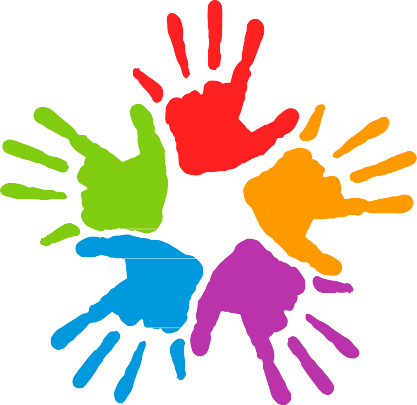
Questions and concerns about mental health?
Check out the JED Foundation's Mental Health Resource Center.
Need Immediate Support?
- National Suicide Prevention Dial: 988
- Trans Lifeline: 877.565.8860
- If you're in California, text "HOME" to 741741 to speak with a crisis counselor.

